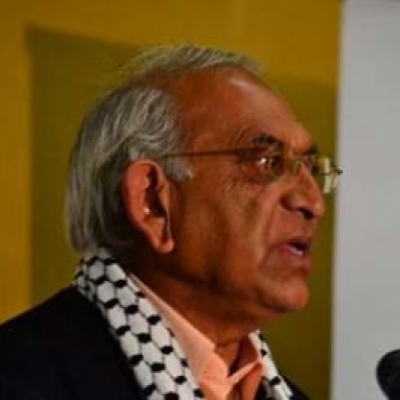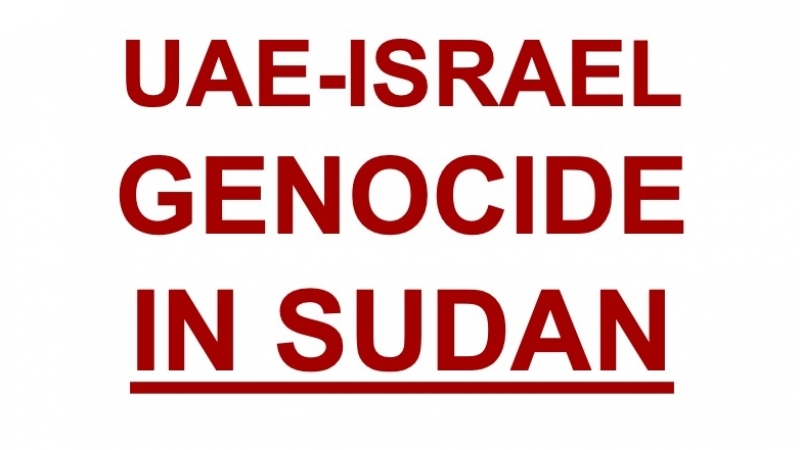



 Iqbal Jassat
Iqbal Jassat
Shocking images of brutal killings and massacre of thousands of civilians in El Fasher, western Sudan, at the end of October appear to have awoken the world to a largely under-reported genocide ongoing for more than two years.
The horrific reality of an escalation in the gruesome war became evident as satellite images revealed the scale of the atrocities.
Victims included women, children, and the elderly.
Though Sudan has been engulfed in one of Africa’s bloodiest conflicts since April 2023, much of the world including African countries had opted to remain unmoved.
This allowed the painful suffering of millions to endure while the battle waged by the Rapid Support Forces (RSF) led by Mohamed Hamdan Dagalo (Hemedti), has turned the country into a hell hole of death and destruction.
Reports indicate that as of late 2025, the war in Sudan has killed tens of thousands of people and displaced over 12.6 million Sudanese, making it the world’s largest displacement crisis today.
Tragically also the health and economic systems have completely collapsed, and the capital, Khartoum, remains divided between rival forces.
Militias dominate Darfur and Kordofan, while the army struggles to maintain control in the east and the Red Sea ports.
However, if the layers of convoluted information is stripped of propaganda, we find that underpinning this grim scenario, are regional and international actors reshaping the architecture of governance and control.
It extends to reshaping the balance of power in the Horn of Africa and not surprisingly involve Israel and the United Arab Emirates (UAE).
Haaretz noted in August 2025 that Israel was exploiting Sudan’s war to justify military expansion in the Red Sea under the banner of “protecting global shipping lanes from Houthi threats.”
The Israeli paper also reported that Tel Aviv has leveraged the crisis to deepen its political footprint in Ethiopia and Eritrea, as part of its broader plan to contain Iranian influence extending from Tehran to Sana‘a and Khartoum.
According to a study in Tehran Times, Tel Aviv’s growing engagement in Sudan cannot be separated from its mounting anxiety over Yemen.
Since the Ansarallah movement seized control of Yemen’s western coast, the balance of deterrence in the Red Sea has shifted decisively.
It cites a report by Israel’s Institute for National Security Studies (INSS), which claims that Houthi control of the Bab al-Mandeb Strait since 2021 has “redefined the Israeli maritime threat,” as Yemeni missiles and drones struck Eilat and disrupted Suez Canal shipping routes.
Israel has begun treating the Red Sea as a primary national security arena, second only to the Mediterranean.
Within this evolving strategy, Sudan functions as a forward buffer zone.
“With the US and UAE active in East Africa, Tel Aviv has found a convenient pretext for expansion, cloaking its military buildup in the rhetoric of international maritime security. The chaos in Sudan has become both a justification and a cover for Israel’s growing Red Sea presence.”
Against this background the latest massacres by the RSF coincides with the revelation that documents seen by the UN show that UK military equipment exported to the UAE has been found in the hands of the RSF.
Reports by Campaign Against Arms Trade (CAAT) confirm that there has been overwhelming evidence over the past two years of UAE arms supplies to the RSF, but this is the first time UK equipment has been found in Sudan via the UAE.
The findings have again prompted scrutiny over Britain’s export of arms to the UAE, which has been repeatedly accused of supplying weapons to the paramilitary RSF in Sudan, as per The Guardian.
“They also raise questions for the UK government and its potential role in fuelling the conflict”.
During April 2025, Sudan held hope that the International Court of Justice (ICJ) would make a finding against the UAE, which it accused of being complicit in acts of genocide by arming and aiding the paramilitary Rapid Support Forces (RSF).
The case, formally titled Application of the Convention on the Prevention and Punishment of the Crime of Genocide in Sudan (Sudan v. United Arab Emirates), was initiated when Sudan filed an application instituting proceedings against the UAE.
Regrettably the ICJ rejected the application saying it “manifestly lacked” jurisdiction to rule on the case and threw it out.
Failure by Africa’s leaders and institutions as well as impotency by international forums such as the UN and the ICJ have resulted in the killings of at least 150,000 people, forced more than 12 million to flee their homes and left nearly 25 million facing acute hunger.
Iqbal Jassat, Executive Member, Media Review Network, Johannesburg, South Africa
